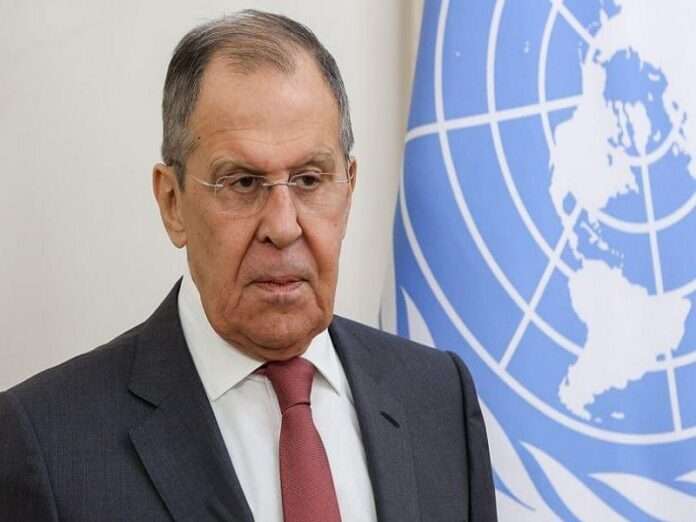Russian Foreign Minister Sergey Lavrov elaborated on his country’s approach to the global systemic transition in an interview with Rossiyskiaya Gazeta in late November, which followed him elaborating on its Afro-Eurasian grand strategy in a separate interview earlier that month that was analyzed here. His latest one concerned the need to rebalance the developing countries’ economic relations with the West and cautioned against them being misled by the ‘green agenda’.
Regarding the first, he reminded his interlocutor about how a lot of Western wealth is derived from lopsided deals with the Global South, which is being exploited through neocolonialism. For example, only 2.6% of the US’ $2.5 billion worth of aid to Haiti after its 2010 earthquake reached companies and organizations there while the rest went into the pockets of American contractors. Another damning statistic that he cited is how African countries only get 10% of the global coffee industry’s profits.
The IMF and WTO have been politicized by the West in order to keep developing countries at a disadvantage. Despite high-sounding rhetoric on occasion, the West has yet to meaningfully reform these institutions and won’t ever do so willingly. “Therefore, both we and our like-minded people from the countries of the World Majority believe that it is high time to bring the principles and management system of the Bretton Woods institutions into line with the real situation in the world economy”, he said.
Lavrov added that “the ‘seven’ (referring to the G7) account for less than a third of the world GDP, and the BRICS member states – 36 percent”, thus illustrating how unfair everything has become. It’s therefore strongly implied that BRICS, including its new partner countries, should collectively pool their capabilities and coordinate their efforts in order to bring about long-overdue institutional reforms. This imperative adds context to why Russia wanted to resume relations with the IMF in September as explained here.
As for the second part of Russia’s approach to the global systemic transition, Lavrov explained how the global trend towards green energy shouldn’t come at the expense of investments in traditional energy, which could lead to “shocks in energy markets and aggravation of the problem of energy poverty.” He also strongly implied that the prevailing view on climate change is inaccurate and therefore possibly being politicized. Here are his exact words:
“It is implied that CO2 emissions create a greenhouse effect, which in turn leads to global warming. It is concluded that if CO2 emissions are limited, there will be no increase in temperature or it will not happen as quickly. At the same time, we as professionals must take into account that not all scientists adhere to such assessments.
There is also a ‘school of thought’ whose representatives, using specific facts and very convincingly, show that climate change is a cyclical process, and, therefore, the significance of the anthropogenic factor in the calculations of supporters of the ‘fight against climate change’, to put it mildly, is greatly exaggerated.”
He didn’t directly say so, but the innuendo is that the West is weaponizing the ‘green agenda’, both as part of a ploy to “aggravate the problem of energy poverty” in the Global South via higher costs for traditional energy like he earlier warned and also as an instrument of control at home and abroad. Cynics might assume that Lavrov has ulterior motives in lending credence to these concerns since Russia is an energy superpower, which might be partially true, but he also wants to foil his Western rivals’ plots.
Circling back to the first part of his interview about the need for developing countries to rebalance their economic relations with the West, his attack against the ‘green agenda’ advances that goal by getting such countries to think twice about blindly comply with their neocolonizers’ demands on this issue. Those that prioritize green energy over traditional energy abandon more reliable energy sources, make themselves dependent on unreliable ones, and might thus be setting themselves up for disaster.
If unpredictable environmental changes cause problems with wind, solar, and hydroelectric power generation after developing countries become dependent on these sources, then the West can exploit the situation through emergency financial and other forms of relief with neocolonial strings attached. That would bring those developing countries back to square one by instantly reversing whatever prior progress they’d made on liberating themselves from the West.
It’s therefore much better for them to only gradually transition to green energy by relying more on natural gas in the interim, which Russia also has in spades and Lavrov correctly described as “the cleanest of all hydrocarbons”, instead of radically shifting gears like the West wants. Moreover, it would also be wise to diversify their energy production through nuclear power generation, which Russia can also help them with as explained here. This portfolio would most effectively hedge against strategic risks.
Putting everything together, Russia’s approach to the global systemic transition as elaborated by Lavrov envisages developing countries collectively reforming existing financial institutions while avoiding the neocolonial trap that the West is setting for them through its ‘green energy agenda’. The first will deprive the West of the wealth that it extracts from the latter, thus speeding up their long-overdue rebalancing, while the second will prevent any serious reversal on the progress that they make in this respect.
Any reduction in the West’s overall influence and power brought about by the aforementioned rebalancing will work to Russia’s advantage by weakening its rivals. They’ll correspondingly find it more difficult to destabilize Russia, wage proxy wars against it, and obstruct its Afro-Eurasian grand strategy. What’s good for the Global South is therefore naturally good for Russia, thus making them equally important for one another, and wider awareness of this should serve to further expand their ties.







